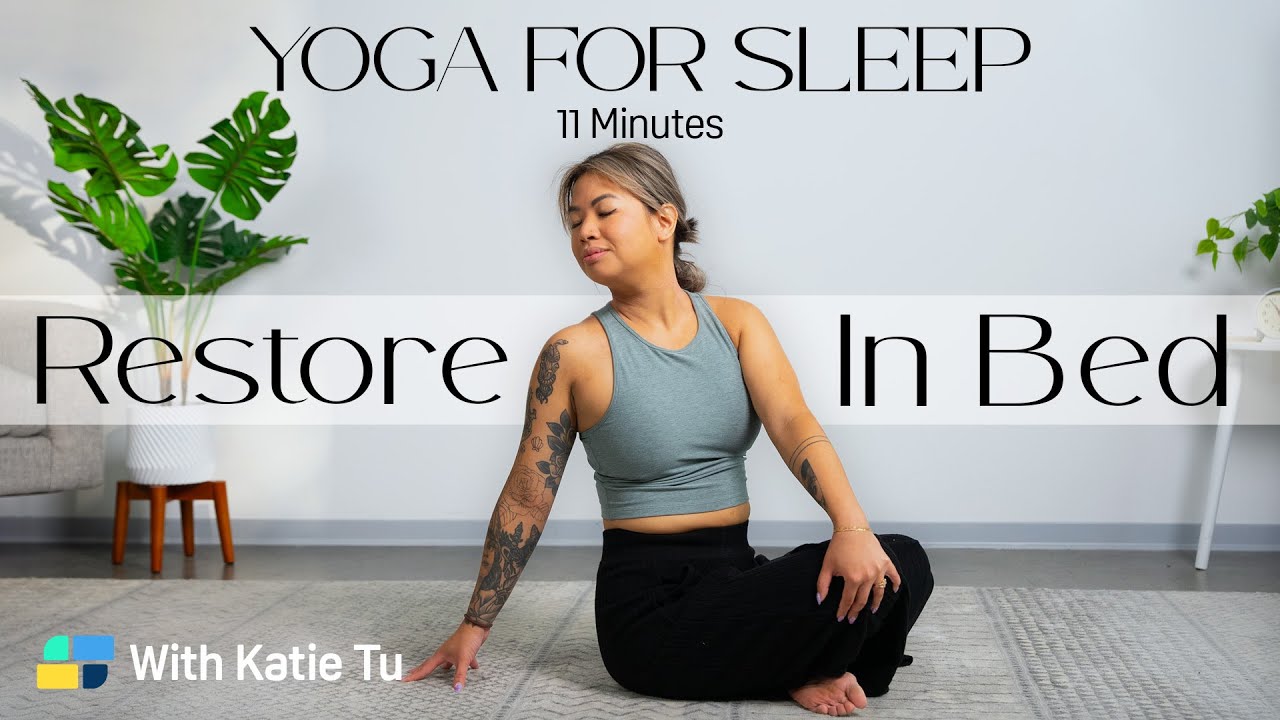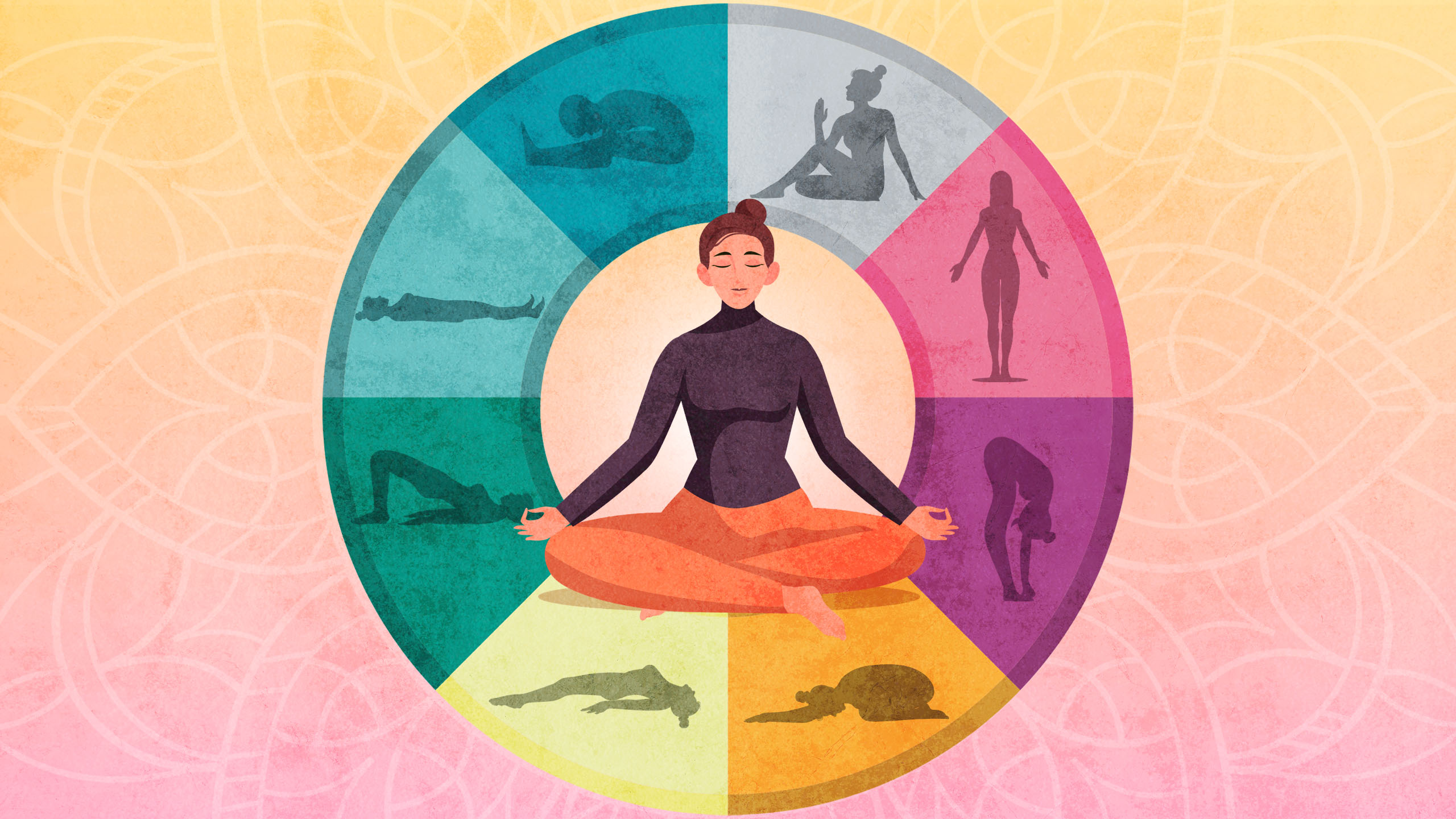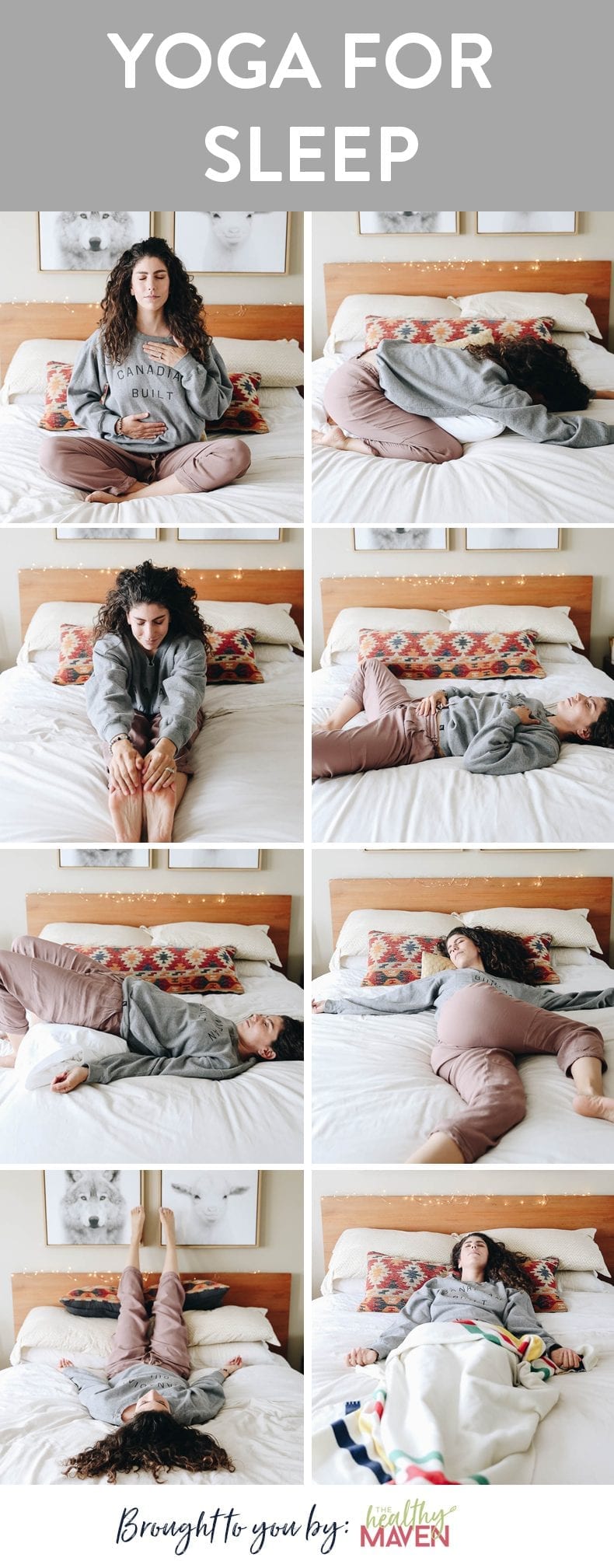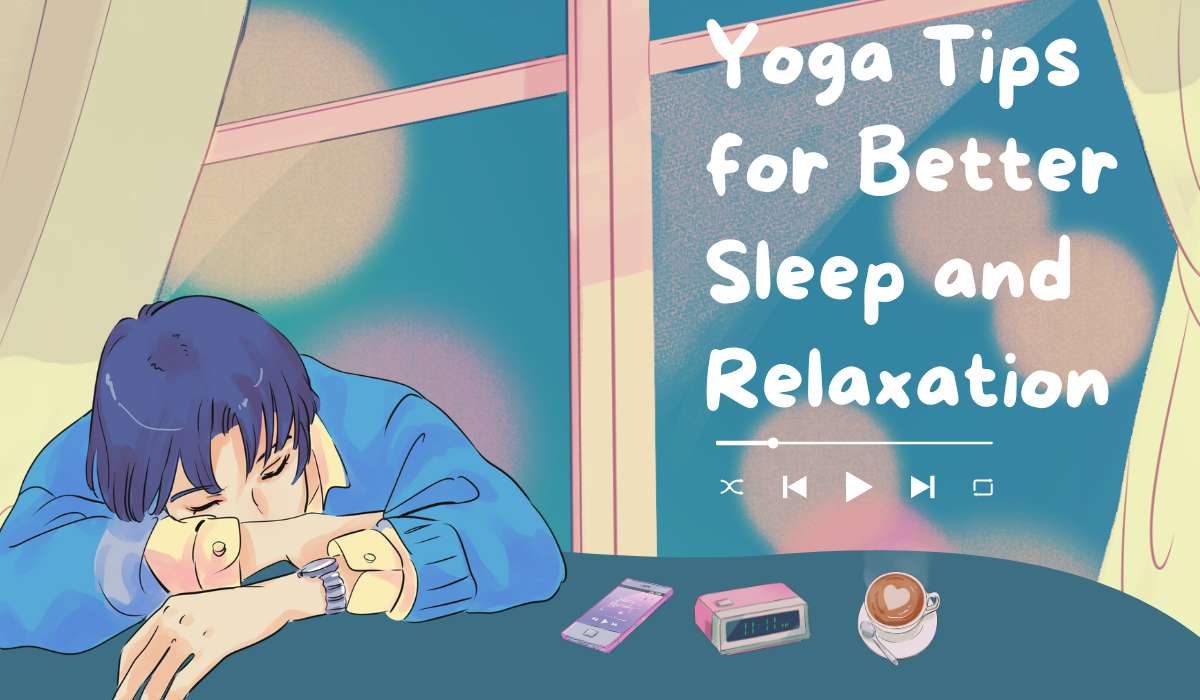Welcome to the world of yoga tips for better sleep and relaxation! If you’ve been struggling to catch some quality shut-eye or find yourself feeling stressed and wound up at bedtime, then this article is for you. In today’s fast-paced world, it can be difficult to unwind and find peace before hitting the hay. But fear not, because incorporating yoga into your bedtime routine can work wonders for your sleep and overall well-being.
Sleep is essential for the body to heal and rejuvenate, and a lack of it can lead to various health issues. Yoga offers a holistic approach to relaxation, combining physical poses, breathing exercises, and meditation techniques. By integrating these practices into your daily routine, you can create a serene and tranquil environment to help you ease into a deep and restorative sleep.
In this article, we will discuss the importance of establishing a relaxing bedtime routine, the benefits of specific yoga poses for better sleep, the power of breathing techniques, and the impact of meditation on your sleep quality. Additionally, we’ll explore how creating a comfortable sleep environment can further enhance your relaxation journey.
So, get ready to embark on a transformative sleep experience as we delve into the world of yoga tips for better sleep and relaxation. Sweet dreams await!
Establishing a Relaxing Bedtime Routine
To establish a relaxing bedtime routine, you need to prioritize consistency and relaxation. Set a regular sleep schedule by going to bed and waking up at the same time every day, even on weekends. This helps regulate your body’s internal clock and trains your brain to associate that time with sleep.
Start winding down at least an hour before bed. Avoid stimulating activities like watching TV or scrolling through your phone. Instead, opt for calming activities like reading a book, taking a warm bath, or practicing gentle yoga stretches.
Create a soothing environment in your bedroom. Dim the lights, keep the room cool, and eliminate any sources of noise or distractions. Consider using essential oils like lavender, chamomile, or sandalwood to promote relaxation.
Limit your intake of caffeine, nicotine, and alcohol, as they can interfere with your sleep quality. Instead, opt for a light snack or herbal tea to promote relaxation.
Lastly, use relaxation techniques such as deep breathing exercises or meditation to calm your mind, release tension, and prepare your body for sleep.
Establishing a consistent bedtime routine

To establish a consistent bedtime routine, you need to prioritize consistency and relaxation. Set a regular sleep schedule by going to bed and waking up at the same time every day, even on weekends. This helps regulate your body’s internal clock and trains your brain to associate that time with sleep.
Start winding down at least an hour before bed. Avoid stimulating activities like watching TV or scrolling through your phone. Instead, opt for calming activities like reading a book, taking a warm bath, or practicing gentle yoga stretches.
Creating a bedtime routine is similar to creating a routine for getting ready in the morning. It can help signal to your brain that it’s time to wind down and prepare for sleep. Stick to a routine and repeat the same activities every night. This consistency will cue your body and mind that it’s time to relax.
You may find it helpful to write down your bedtime routine so you have a clear plan for each night. This can help you stay on track and avoid feeling overwhelmed or unsure about what to do next.
By establishing a consistent bedtime routine, you can help signal to your body and mind that it’s time to relax and prepare for sleep. This can lead to better quality sleep and overall improved well-being.
Easy Yoga Poses for Better Sleep

Breathing techniques can be a powerful tool to help you relax and prepare your body for sleep. When you focus on your breath, you activate the parasympathetic nervous system, which promotes a state of calm and relaxation. Practicing deep breathing exercises before bed can signal to your body that it is time to unwind and enter a restful state.
One effective breathing technique is called the 4-7-8 breath. To do this, inhale through your nose for a count of four, hold your breath for a count of seven, and then exhale through your mouth for a count of eight. Repeat this cycle several times, focusing on the sensations of your breath and letting go of any tension or stress.
Another technique is the alternate nostril breathing. Sit comfortably and close your right nostril with your right thumb. Inhale deeply through your left nostril and then close it with your index finger. Release your right nostril and exhale. Inhale through your right nostril, close it, and exhale through your left. Repeat this pattern for several minutes, allowing your breath to become slow and rhythmic.
By incorporating these breathing techniques into your bedtime routine, you can promote relaxation and quiet your mind, allowing you to drift off into a peaceful sleep.
Benefits of Meditation for Sleep
Meditation can offer numerous benefits for improving the quality of your sleep. When you engage in meditation before bed, it helps calm your mind and create a sense of inner peace. This can be especially helpful if you struggle with racing thoughts or anxiety that keeps you awake at night.
By practicing meditation regularly, you can train your mind to become more present and focused. This can help you let go of worries and stress that might be keeping you up at night. As you develop a deeper sense of relaxation through meditation, it becomes easier to drift off into a restful sleep.
Meditation can also help regulate your breathing and reduce physical tension in the body. By focusing on your breath and consciously relaxing your muscles, you can release any built-up tension, allowing your body to fully relax and prepare for sleep.
In addition, meditation can help improve overall sleep quality by promoting a sense of mindfulness and awareness. When you are more present and aware of your body and surroundings, you are less likely to be disturbed by outside noises or internal disturbances.
Incorporating meditation into your bedtime routine can have profound effects on your sleep. By dedicating just a few minutes each day to meditation, you can experience greater relaxation, reduced stress, and a more restful night’s sleep. So, why not give it a try and see the positive impact it can have on your sleep?
Creating a Comfortable Sleep Environment

When it comes to creating a comfortable sleep environment, there are a few key factors to consider. First, make sure your bedroom is cool, quiet, and dark. This will help promote a more peaceful and restful sleep.
Invest in a comfortable mattress and pillows that provide proper support for your body. This will help alleviate any physical discomfort that might keep you awake at night.
Keep your bedroom tidy and free from clutter. A clean and organized space can help create a sense of calm and relaxation.
Consider using blackout curtains or an eye mask to block out any unwanted light. This can be especially helpful if you live in an area with streetlights or other sources of nighttime illumination.
Use earplugs or a white noise machine to drown out any background noise that might disturb your sleep. This can be particularly beneficial if you live in a noisy neighborhood or have a partner who snores.
Lastly, establish a technology-free zone in your bedroom. Remove any electronic devices that emit blue light, such as your phone or tablet. The light from these devices can disrupt your sleep-wake cycle and make it harder to fall asleep.
By creating a comfortable sleep environment, you can set yourself up for a more restful and rejuvenating night’s sleep. So, take the time to make your bedroom a sanctuary of relaxation and reap the benefits of a good night’s rest.
Conclusion of Yoga Tips for Better Sleep and Relaxation
Congratulations on taking the steps to improve your sleep quality through yoga tips and techniques! By establishing a relaxing bedtime routine, practicing easy yoga poses, incorporating breathing techniques, and implementing meditation, you have set yourself up for a better night’s sleep.
The calming effects of yoga, combined with deep breathing and meditation, can help ease your mind and prepare your body for a restful slumber. These practices promote relaxation, reduce stress, and release tension, allowing you to drift off into a peaceful sleep more easily.
Creating a comfortable sleep environment is also crucial in ensuring a good night’s rest. By maintaining a cool, quiet, and dark bedroom, investing in a supportive mattress and pillows, and removing any electronic distractions, you are setting the stage for optimal sleep conditions.
Quality sleep is essential for your overall well-being and daily functioning. It can boost your mood, enhance cognitive function, improve immune function, and promote better physical and mental health.
Remember to be consistent with your sleep routine and make it a priority. With dedication and practice, you will soon experience the benefits of improved sleep and wake up feeling refreshed and energized each day.
So, keep up with your yoga practice, embrace relaxation techniques, and create a sleep sanctuary to enjoy the many benefits of better sleep and relaxation. Sleep well and wake up ready to conquer each day with ease!
For More Blogs visit Aerns

